November kicks off the National Podcast Post Month and if you’re in our audience, maybe you’ve asked yourself before if you should start a bookish podcast. Whether you just need a place to put your thoughts down when you’ve finished your latest read or you’re hoping to interview and connect with your favorite authors, NaPodPoMo could be a great place to start.
This national challenge has been taking place for nearly 20 years and has challenged would-be podcasters to dive into the creation process head first. Much like NaNoWriMo that challenges writers to produce a full-length novel in the span of one month, NaPodPoMo encourages aspiring audio lovers to produce 30 episodes in the same span of time.
The point of the challenge is creation over perfection and getting started versus getting stuck in the planning phase. Whether you participate in NaPodPoMo or want to start a bookish podcast at any other point, we have a few pointers to get you off the ground!
Should I Start a Book Podcast?
Before we get into any of the how’s of creating a bookish show, let’s start with if you should. Before you launch into this, ask yourself a few questions:
- Do I like creating bookish content as much as I like reading? Some people just love to read, other people really love to talk about reading and books. If you’re the latter, a podcast could be a great platform. If you like attending events, going to signings and sharing your TBR on social media, a podcast could be great.
- Do I want to keep reading a hobby or would it be okay if it felt like a job? For people who love reading, having a reading-related job or side hustle sounds great… but it can take some of the joy out of reading. Reading because you have to, speed reading on a deadline or exposing yourself personally in the book community can muddy a joyful pastime. Make sure you love reading so much, you’re okay with it occasionally feeling like work.
- Do I have something to say? It seems like an obvious question, but before you hit record, spend some time brainstorming what the podcast might look like. Do you have ideas for episodes beyond just talking about the books you’re reading? Are you focusing on a genre? Do you have a particular message you want to get across? What would make your show unique? Who is your target audience?
Listen to Other Book Podcasts
If you’re trying to find your angle or to see how some of the best in the business get it done, you might want to start with our list of the 50 Best Book Podcasts.
Don’t listen for the sake of comparison (it takes a while to develop a voice, high production skills, etc.), instead, listen for what you wish was there. Are there questions in an interview you wish would be asked? Are there ways to review a book that isn’t being done? Do you want to merge the experience of reading with another passion like TV, politics, current events or your own writing journey?
Find a Niche
There is no shortage of content on any given platform and podcasts are no different. Millions of people have started podcasts, created BookTok and Bookstagram accounts, or created websites dedicated to reading. Still, you can find an audience and grow a platform, but you’d be giving yourself a head start if you found an underserved niche.
Take Allie Martina’s Zipless for example. Her romance podcast isn’t the first to cover the genre, but she’s using her skills as an audiobook narrator to create a whole new experience. Furthermore, she’s not just exploring any old love story, she’s getting into the nitty gritty of the spicy book world. With author interviews, exclusive narrations and even reader letters, Allie has used her talent and created a brand new format that has turned a new show into an instant hit (and award-winner). Consider what talents, connections or content angles you can hone in on to create a unique experience in a crowded space.
Decide on the Format
There are more than a few ways to create a podcast. In the example of Zipless above, you can see a multi-format approach that combines interviews with professional narration and audience participation. But what approach will you take?
Will it be conversational between you and a bookish bestie? Will you be doing “(wo)man on the street” interviews from book conferences? Are you going to cover the latest bookish news and drama like a journalist report from the streets of BookTok? There are so many ways to approach a podcast, which one makes the most sense for you and your content?
Bulk Produce Episodes for Launch
One of the great things about starting a book podcast during NaPodPoMo is the drive to create content in bulk. Audiences are going to struggle to get to know a new show based on one episode being released at a time. And no one is going to nail their first episode, no matter how much time they spend on it. Give yourself the chance to practice, give audiences a little variety, and provide a sampler of what subscribers might expect over time. Whether you go for six, twelve or twenty episodes to launch with, more is more in the beginning while you’re trying to learn and listeners are trying to decide if you’re worthy of a follow.
Production Decisions
Perhaps the most difficult part of the process is diving into audio production. We all want studio-level perfection that mirrors the top shows out there, but unless you are starting with a HUGE budget, this won’t be you. Instead, focus on the message and the content and producing episodes consistently. NaPodPoMo founder, Jennifer Navarrete, notes that many challenge participants record their first episodes on their phones, using only equipment that they already have at their disposal—headphones, Garage Band for editing, Canva for cover art, royalty free music for the intro, etc. You will build skills and potentially build up to hiring someone to help with time, but until then, focus on seeing if you actually like doing it. And if there is an audience for your niche.
You can start a book podcast for fun or with a long-term plan to monetize or to build a brand. Ultimately, though, there’s no downside to exploring a creative outlet for your reading obsession. Allow yourself the room to be a beginner, take notes from podcasting idols and never underestimate how a small choice to start can lead to a big, beautifully bookish life!
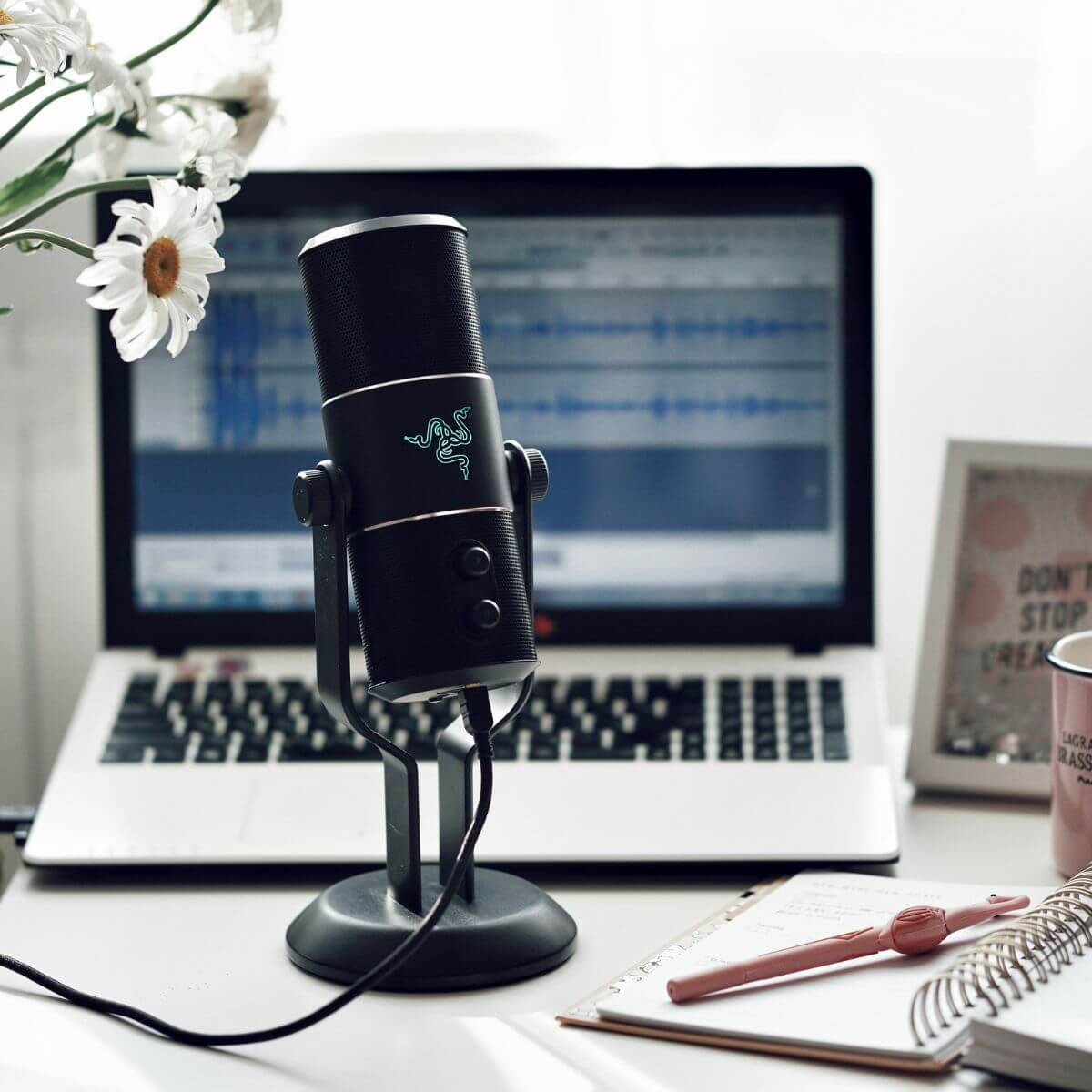
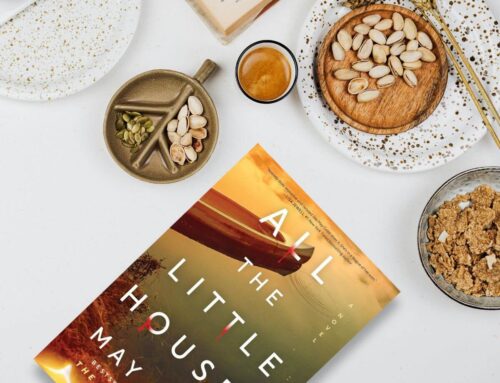

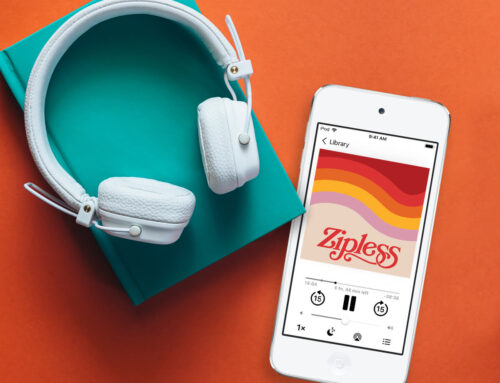
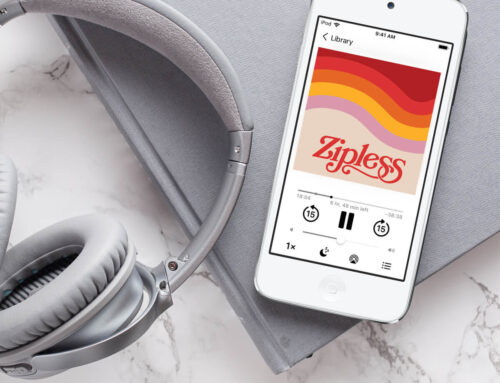
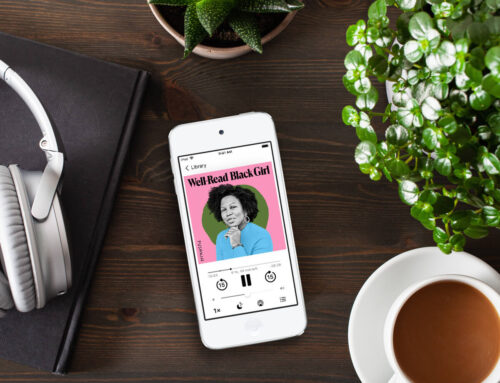

Leave A Comment